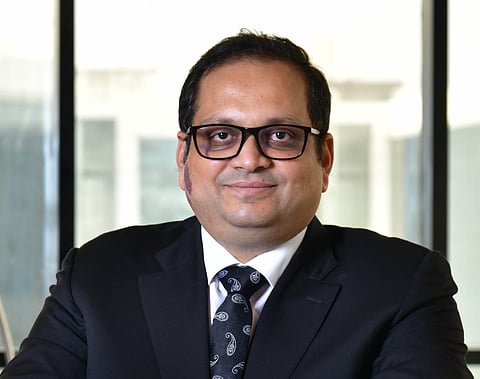Arbitration gains
The legal practice area of arbitration, both in India and abroad, is experiencing a noteworthy evolution, driven by the complexities of globalisation, the increase in cross-border transactions and the growing need for effective dispute resolution mechanisms. As businesses expand internationally, arbitration has gained recognition as a highly effective method for resolving disputes.
India has made considerable advancements in its arbitration framework through legislative reforms, such as the Arbitration & Conciliation (Amendment) Act, 2015 and Arbitration & Conciliation (Amendment) Act, 2019, which introduced key provisions designed to enhance accessibility and efficiency in arbitration. “Notable changes include the implementation of expedited procedures to ensure quicker resolution of disputes, time constraints to minimise delays and improved access to interim relief options. The Indian judiciary has increasingly favoured arbitration, reinforcing the validity of arbitration agreements, advocating for limited judicial intervention and upholding the integrity of arbitral awards, thereby underscoring a pro-arbitration inclination,” explains Manoj K. Singh, counsel, S&A Law Offices & chairman, executive committee, Bar Council of Delhi.
Singh’s journey started from humble beginnings as a first-generation lawyer has transformed his practice across multiple legal practice areas. This diverse team specialises in various areas of law, including alternative dispute resolution (ADR), litigation, corporate and M&A, insolvency, bankruptcy, intellectual property rights, and more.
India’s engagement in various international treaties further enhances the global enforceability of arbitration awards. The adoption of the UNCITRAL Model Law on International Commercial Arbitration aligns Indian practices with international standards, bolstering its reputation as an arbitration-friendly jurisdiction. Additionally, the establishment of esteemed arbitration institutions like the Indian Council of Arbitration (ICA) and the Mumbai Centre for International Arbitration (MCIA) has contributed to the professionalisation of the arbitration process in India.
User-friendly procedures
“The recent challenges posed by the Covid-19 pandemic have also accelerated the integration of virtual hearings and digital tools into arbitration proceedings, promising enhanced accessibility and reduced logistical burdens. On the international stage, various jurisdictions are proactively reforming their arbitration laws to attract global enterprises, highlighting user-friendly procedures, with cities like Singapore, Hong Kong, and Dubai establishing themselves as leading arbitration hubs,” points out Singh.
Moreover, particular sectors, such as construction, energy and technology are increasingly developing tailored arbitration rules to address unique industry challenges.
Singh differentiates his law practice through a combination of specialisation, a client-centric approach, and a vision for continuous evolution in the legal landscape. Thereafter, he shifted his focus to ADR, particularly arbitration, project advisory and strategy consultancy. Rather than adopting a one-size-fits-all strategy, Singh tailors his legal solutions to align with the specific goals of his clients, fostering stronger relationships built on trust and effective communication.
Singh has been actively engaged in high-stake arbitration matters involving numerous Fortune 500 companies. Recently, he represented Delhi International Airport Limited (DIAL) in arbitration proceedings against the Airport Authority of India (AAI), achieving a favourable award of Rs2,300 crore for DIAL. Similarly, he acted for Mumbai International Airport Limited (MIAL) against AAI, securing an award that mandated AAI to refund about Rs1,500 crore, including interest, to MIAL. He was also the lead counsel for Adani Ennore Container Terminal Pvt Ltd (AECTPL) against Kamarajar Port Ltd (KPL), where the Arbitral Tribunal awarded a sum of Rs1,600 crore in favour of AECTPL.
Additionally, Singh represents Jindal ITF Limited in various arbitration matters involving collective claims totalling Rs5,500 crore, as well as PNC Infratech Ltd, concerning effective claims exceeding Rs1,500 crore. He is also representing Parsa Kente Collieries Limited (PKCL) and advocating on behalf of Kalpataru Projects International and its subsidiary, JMC Projects (India), before the Arbitral Tribunal in claims amounting to over Rs2,000 crore.
“By leveraging AI for tasks such as legal research and predictive analytics, legal professionals can improve their decision-making processes and service delivery. The emergence of virtual platforms for hearings and dispute resolution signifies a transformative shift towards more convenient and accessible legal processes, reflecting changing client expectations”, says Singh on the ongoing technological revolution.
“As we navigate these advancements, it is essential for legal professionals to embrace the benefits of technology while upholding their ethical responsibilities in an increasingly complex and regulated environment”, concludes Singh.

